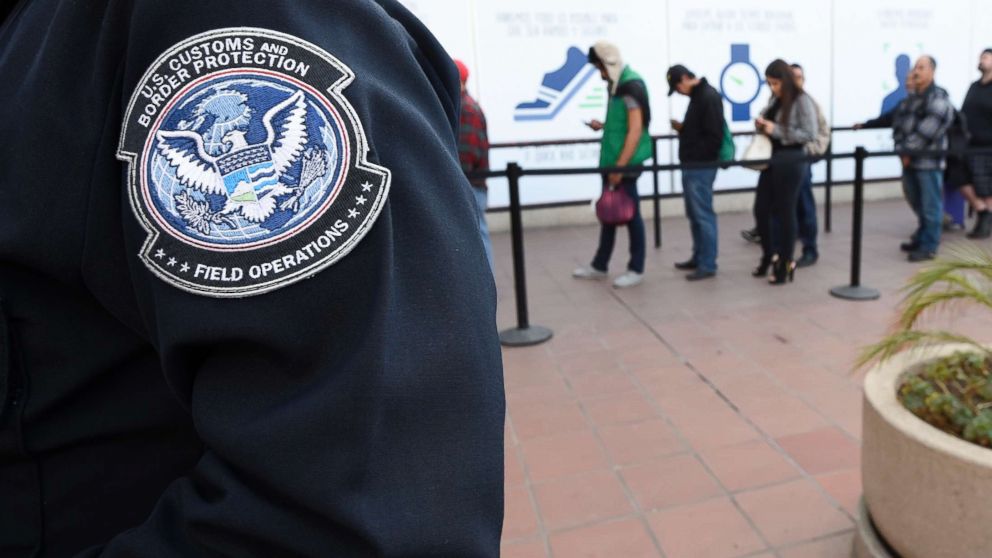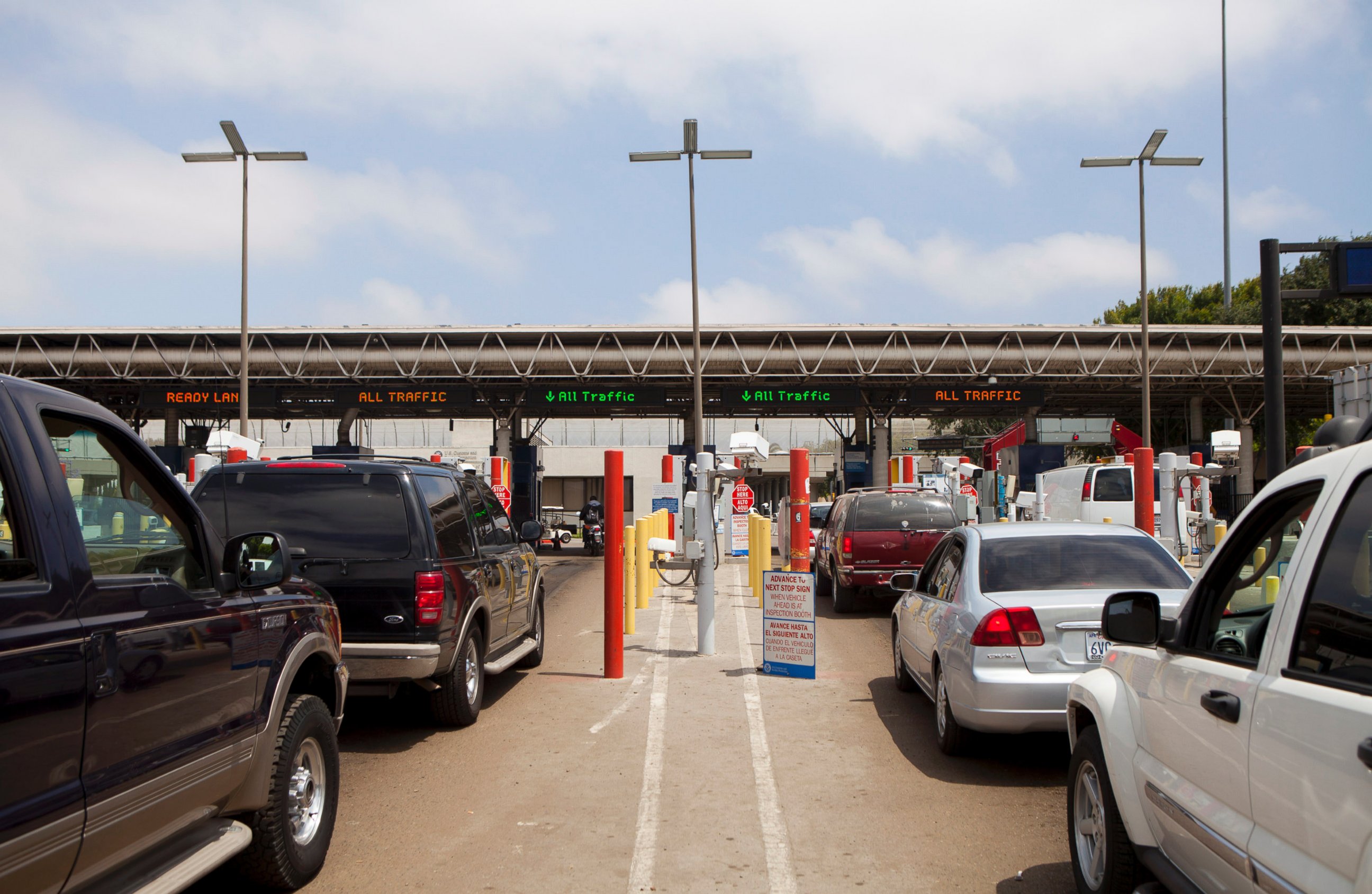Searches of travelers' electronic devices up nearly 60 percent
The record month was in August, with 3,133 searches of electronic devices.

— -- Customs officials searched more travelers’ electronic devices in 2017 than any previous year.
In fiscal year 2017, U.S. Customs and Border Protection (CBP) officers conducted 30,200 searches, up nearly 60 percent from 19,051 in 2016.
The number of searches of cellphones, laptops, tablets and other electronic data spiked from 2015 to 2016 and the upward trend continued last year.
The record month was in August, with 3,133 searches of electronic devices.
CBP is authorized to search any device of any international traveler -- both U.S. citizen and non-citizen -- as they leave or enter the United States, similar to a bag search.
About 80 percent of searches are of non-U.S. citizens. Only diplomats are exempt.
Just a fraction of travelers have their electronics searched. Approximately 0.007 percent of arriving international travelers processed by CBP officers in 2017 had their devices searched.
The number of searches has gone up over the past few years because travel has increased, more people carry devices and CBP has trained more officers in the search process, according to a senior CBP official.
CBP also released an updated policy directive this week, which provided clarified guidance and standard operating procedures for searching, reviewing and retaining information found on these devices.
The bureau issued the new directive to clarify public questions over the issue, as well as give “crystal clear” guidance to officers conducting the searches in the field, according to the senior CBP official.
The directive clarifies that only data found on the physical device at the time of travel can be reviewed by customs officials. Information stored on the cloud that’s not already downloaded cannot be viewed.
In addition, officials are instructed to ask travelers to turn off their data transmission capability, such as putting a phone in airplane mode, before an officer looks at the phone, so that cloud data won’t inadvertently be viewed.
Officers are instructed to document passwords only for the purposes of opening a phone or other device, according to the directive. CBP officers must destroy the password once the device is opened.
The directive also distinguishes “basic” and “advanced” searches. A basic search is a review of the content on the phone. An advanced search is when CBP is required to conduct further forensic testing to retrieve the data.
In order to do an advanced search, it must be based on “reasonable suspicion” of a violation of the law or a “national security concern” and requires approval by a higher-level officer.
The majority of searches are basic searches, said CBP.
If someone refuses to unlock a device, the device can be detained by CBP.
U.S. citizens will always be allowed to enter the U.S., but their phones could be held back -- generally for no more than five days.
For non-citizens, refusal to open a device could lead to denied entry. If incriminating information is found, CBP officers could refer the case to an investigative agency, like the FBI, or for non-citizens, deny them entry into the U.S.
People are selected for an electronic search based on a number of factors, including travel pattern, prior intelligence and answers to interview questions.
CBP has policies against racial profiling but said that country of origin can play a part in whether someone is searched, according to the CBP official.

These searches help detect evidence relating to terrorism and other national security matters, human and bulk cash smuggling, contraband, and child pornography, as well as financial and commercial crimes, according to CBP.
A “good number” of the searches that lead to inadmissibility involve national security-related content, said a senior CBP official.
Images of terror groups, like ISIS and images of torture have been found during these searches, according to CBP.
“In this digital age, border searches of electronic devices are essential to enforcing the law at the U.S. border and to protecting the American people,” said deputy executive assistant commissioner, Office of Field Operations, John Wagner in a statement.
Electronic searches have been under scrutiny from groups like the American Civil Liberties Union (ACLU), which said that despite improvement, the updated policy still "falls far short of what the Constitution requires -- a search warrant based on probable cause."
“The policy would still enable officers at the border to manually sift through a traveler’s photos, emails, documents, and other information stored on a device without individualized suspicion of any kind. Additionally, it fails to make clear that travelers should not be under any obligation to provide passcodes or other assistance to officers seeking to access their private information. Congress should continue to press CBP to improve its policy," said Neema Singh Guliani, legislative counsel at the American Civil Liberties Union, in a statement.
In September, the ACLU, along with Electronic Frontier Foundation sued the administration, challenging searches of smartphones, laptops, and other electronic devices at the border as unconstitutional.
The lawsuit represents 10 U.S. citizens and one green card holder, which the ACLU says had their rights violated when border officials searched their smartphones or other electronic devices when they were returning from travel abroad. Officials confiscated and held several of their devices for weeks or months, according to the lawsuit.
In December, the government filed a motion, asking the court to dismiss the case.




